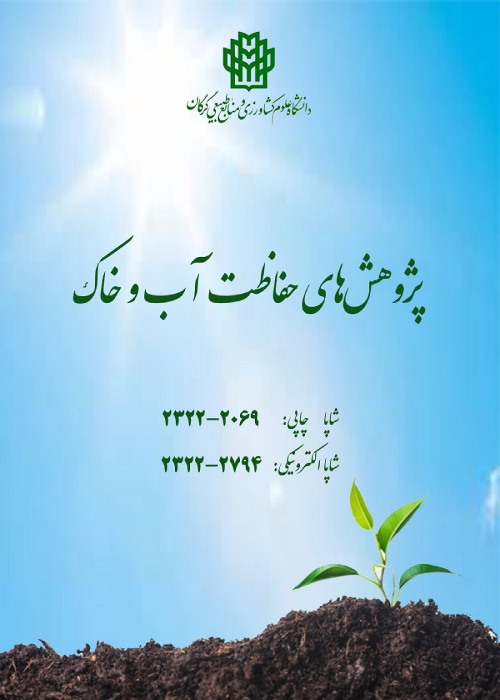Rhizosphere soil of dry farming wheat as a useful source for isolating salinity and drought resistance Fluorescent Pseudomonas bacteria
Fluorescent Pseudomonads bacteria are one important group of the most important beneficial rhizobacteria that increase the growth of many plants due to having plant growth promoting (PGP) properties.
This research was carried out to screen 15 Fluorescent Pseudomonads isolates bacteria, isolated from rhizosphere soil of dry farming wheat, in terms of PGP traits such as 1-aminocyclopropane-1-carboxylic acid (ACC) deaminase, indole-3-acetic acid (IAA), siderophore, solubilization of inorganic insoluble phosphates (Tricalcium phosphate: TCP) and hydrogen cyanide (HCN) (under non-saline and saline conditions), salinity resistance, drought resistance using polyethylene glycol (PEG6000) (with osmotic potentials of ─5, ─10 and ─15 bar).
All 15 isolates had the ability to grow at different drought levels. At the salinity levels of 4 and 10% sodium chloride (NaCl), only 10 and two isolates had the ability to grow. All of these isolates also had the ability to solubilize TCP and produce ACC deaminase, IAA, and siderophore, while nine isolates were positive for producing HCN. In the presence of salinity of 4% NaCl, all isolates were able to solubilize TCP, while only 8, 13, 6, and 4 isolates were able to produce ACC deaminase IAA, siderophore and HCN, respectively.
Considering the fact that a considerable amount of Pseudomonas fluorescent isolated from rhizosphere of wheat in this study were able to grow well in salinity of 4%, and also the studied bacteria at different levels of drought stress, in osmotic pressure of -15 Bar or 37.62% polyethylene glycol (PEG 6000) were able to grow. In addition to salinity and drought resistance, these bacteria were able to produce plant growth promoting components (PGPs) in the presence and absence of salinity. Specially, the results of this study showed that some native isolates of the dry farming soils of the country were able to produce the ACC-deaminase enzyme, but this ability was significantly reduced (46.6%) in salinity stress (4% sodium chloride salt) and even in some isolates the production of this enzyme was stopped. Therefore, based on the results of this study, it can be concluded that wheat rhizosphere soil of dry farming can be a suitable source for isolating Pseudomonas fluorescent bacteria, some of which have been able to maintain their growth stimulants in the presence of salt. Since, in dry conditions, the use of chemical fertilizers increases soil salinity twice, the use of such bacteria (phosphate solubilizing Pseudomonas) can reduce some of the limitations of wheat production in dry farming. However, their application as bio-fertilizer requires more greenhouse and field tests.
- حق عضویت دریافتی صرف حمایت از نشریات عضو و نگهداری، تکمیل و توسعه مگیران میشود.
- پرداخت حق اشتراک و دانلود مقالات اجازه بازنشر آن در سایر رسانههای چاپی و دیجیتال را به کاربر نمیدهد.



